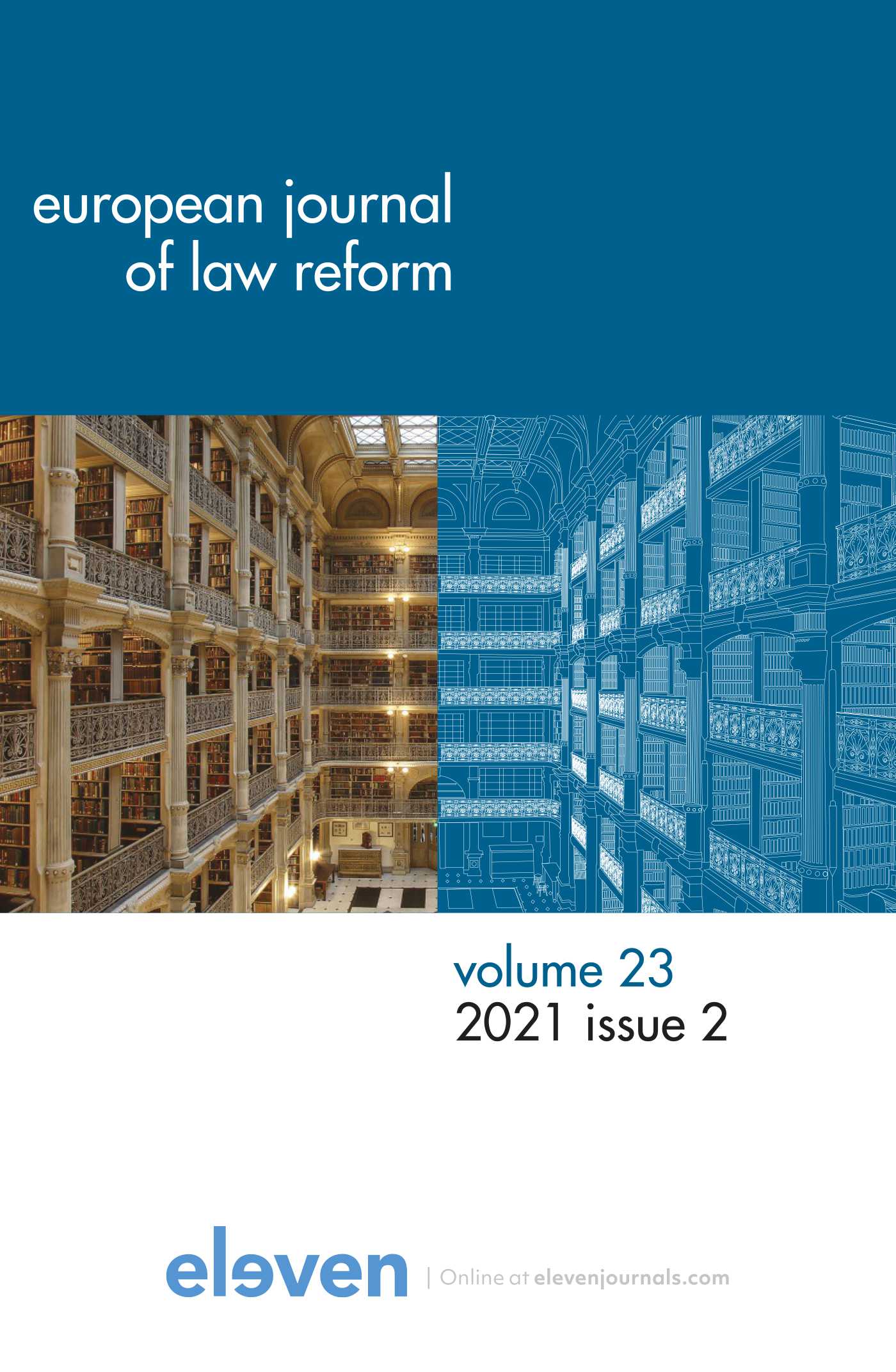|
For legislation to be inclusive it must be expressed in a way that is gender-neutral. Gender-neutral drafting became a policy issue in New Zealand in the 1980s and since that time gender-neutral drafting has become an accepted drafting practice. The issue has been to ensure previous legislation is gender-neutral. The Legislation Bill that is before the Parliament provides for legislation already enacted to be reviewed to remove gendered language. The main lesson to be learnt from the New Zealand experience is the need for political and bureaucratic commitment to gender-neutral drafting. |


European Journal of Law Reform
About this journalSubscribe to the email alerts for this journal here to receive notifications when a new issue is at your disposal.
| Editorial |
|
| Authors | Constantin Stefanou |
| Author's information |
| Article |
|
| Keywords | legislation, policy, gender-neutral law drafting, New Zealand |
| Authors | Margaret Wilson |
| AbstractAuthor's information |
| Article |
|
| Keywords | rule of law, drafting EU legislation, Framework Decision 2002/584 on the European Arrest Warrant |
| Authors | William Robinson |
| AbstractAuthor's information |
|
This article considers some of the requirements for good laws, focusing in particular on the drafters’ perspective. It looks first in general terms at the requirements forming part of the rule of law that laws be accessible and predictable. It then examines the drafting of laws in the European Union: how it is done; the concern to make EU laws accessible; and specific features of EU legislative drafting rules and practices, illustrated by reference to Framework Decision 2002/584. |
| Article |
|
| Keywords | legislative drafting process, role of instructing officer and drafter |
| Authors | Rozmizan Muhamad |
| AbstractAuthor's information |
|
The importance of legislation is beyond any dispute. Legislation governed us perhaps even before our birth, certainly during our life and until our death. Even after our death there is still the Estate Duty Act to worry about, although of course the burden passes on to our executors or administrators. But day after day, many more new laws have been proposed and many existing laws have been revised and amended for various reasons and motives. The need for legislation has never diminished but continues to increase. Governments need legislation to govern, by which they achieve their political objectives and public policies. In other words, legislation is needed to affect changes in the law, to interfere with vested rights and interests, and to impose taxes, duties, excise and imposts. Such need originates from one or more of a great many sources such as a commission of inquiry, politicians, a particular pressure group or the public as a whole and also a reaction to social situations which seemingly develop independently or deliberately |
| Article |
|
| Keywords | judicial activism, separation of powers, constitutional interpretation |
| Authors | Reyneck Matemba |
| AbstractAuthor's information |
|
This article examines the concept of judicial activism in relation to the courts’ role of interpreting legislation, particularly focusing on the courts’ function of interpreting the Constitution. It specifically examines modes of constitutional interpretation obtaining in RSA and Nigeria, by focusing on selected judicial decisions by superior courts in the two countries. It also examines constitutional provisions governing the interpretation of the Constitution (Bill of Rights) and legislation as provided for in the Constitution of RSA and that of Nigeria. It also makes a comparative examination of judicial approaches to the interpretation of socio-economic rights enshrined in the Constitution of each of the two countries, specifically focusing on the rights to health and housing.The article observes that the concept of judicial activism is a necessary tool for attaining justice and achieving social transformation. |
| Article |
|
| Keywords | delegated legislation, administrative law, judicial review |
| Authors | Kadija Kabba |
| AbstractAuthor's information |
|
This essay examines judicial review in executive/administrative action as an essential tool for curbing the excesses and abuse of delegated legislative powers in Sierra Leone based on the valid assumption that there is a system of administrative law due to a developed system of judicial review in Sierra Leone. To examine and establish the facts, focus is laid on judicial review of administrative/ executive action and not on judicial review of primary legislation.This article first and foremost tried to establish that, the practice of delegated legislation from which judicial review ensues is a necessity in any given democratic society.This piece of work in trying to establish its facts, put forward arguments by scholars and writers in support and against the use of judicial review as an essential tool to curb the abuse and excesses of executive’s action. This is juxtaposed in conjunction with cases laws from Sierra Leone dealing with judicial review.The irrefutable fact this article tried to illustrate is that judicial review is important in any society in curtailing the excesses and abuse of executive actions. |

 Issue 3-4
Issue 3-4